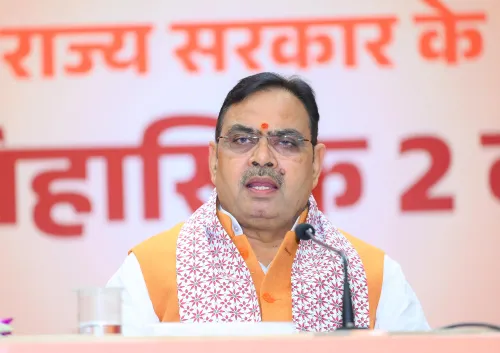Why is a PIL Filed in Calcutta HC for 'The Bengal Files' Screening?

Synopsis
Key Takeaways
- PIL filed in Calcutta HC seeks intervention for film screening.
- Unofficial ban on 'The Bengal Files' in West Bengal.
- Petitioner argues for fundamental rights to view certified films.
- Court's decision could reshape cinema freedom in the region.
- Previous petition dismissed for lack of evidence.
Kolkata, Sep 16 (NationPress) A public interest litigation (PIL) was submitted on Tuesday at the Calcutta High Court, requesting the court's intervention to guarantee a smooth and peaceful screening of the Vivek Agnihotri-directed 'The Bengal Files' in cinema halls and multiplexes across West Bengal.
Currently, there exists an unofficial ban on the showing of 'The Bengal Files' in West Bengal, where cinema hall and multiplex owners have refused to allocate screening slots for the film, reportedly due to pressure from a specific political organization.
On Tuesday, Sayan Kangsabani, a resident of Nadia district in West Bengal, filed the PIL questioning why a film, which has been approved by the Central Board of Film Certification (CBFC), should encounter such obstacles in its screening within a state.
The petitioner contended that the right to view any CBFC-certified film without obstruction is a fundamental right for every Indian citizen in all states, and any denial of this right constitutes a violation of their fundamental freedoms.
Kangsabani further argued that since 'The Bengal Files' is being screened freely in other states, there is no justification for its absence from West Bengal.
The PIL has been accepted, and a hearing is anticipated to take place later this week.
Earlier this month, a petition against the screening of 'The Bengal Files' was dismissed by a single-judge bench led by Justice Amrita Sinha, as the petitioner could not substantiate their claims with adequate evidence.
The petition was filed by Santanu Mukherjee, the grandson of freedom fighter Gopal Mukherjee, who is depicted in the film.
Justice Sinha clarified that such petitions fall outside her court's jurisdiction and advised the petitioner to seek the appropriate forum for resolution.
'The Bengal Files' is considered the third installment of the 'Files' trilogy, following 'The Tashkent Files' in 2019 and the highly controversial 'The Kashmir Files' in 2022.
Previously, the Mamata Banerjee-led government in West Bengal faced accusations of imposing gag orders on other films for purportedly flimsy reasons, including the film 'The Kerala Story' directed by Sudipto Sen.










